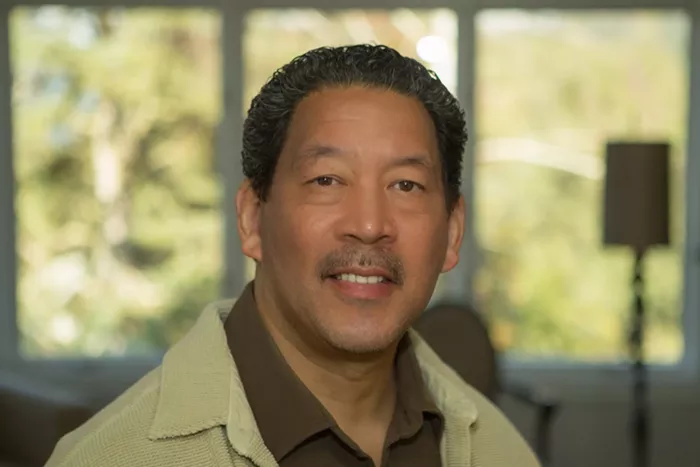Mayor Bruce Harrell likes to remind Seattle that he brings “experience” to the job, but experience alone does not guarantee effective leadership. Captain E.J. Smith boasted years of experience before he hit the iceberg that sank the Titanic. Four years in the White House did not make Donald Trump “presidential.” Andrew Cuomo’s “experience” as New York’s governor doesn’t automatically make him the right person to lead New York City at this moment.
As city workers who have collectively served for more than 30 years at Seattle City Light, Parks and Recreation, and the Office for Civil Rights, we have had the “Harrell experience.” His leadership demoralized the workforce, shrank services, and left city departments too paralyzed to meet the needs of our communities.
Ryan Driscoll, Seattle Office for Civil Rights
Seattle’s Office for Civil Rights should be leading the charge to protect residents from discrimination, especially now as the federal government rolls back protections for immigrants, transgender people, and people with disabilities. But Mayor Harrell’s refusal to fix the city’s structural budget deficit means our office is consistently being asked to do more with less. Managers are focused on justifying their team’s work to prevent cuts, we delay hiring positions to save money, and there are no resources to expand our services despite increasing needs.
For us, that has meant our investigators who look into civil rights violations have increasing case loads and less capacity to support our proactive work. Next year, for instance, we’ll do less engagement at community events where we inform residents of Seattle’s antidiscrimination laws. These conversations matter. They educate renters about our first in time law, help small businesses and landlords know how to interact with service animals, and tell our gay and trans neighbors that they’re still protected in Seattle.
Seattle’s residents deserve a mayor who is willing to push for a long-term solution to our budget issues and fully fund the programs that support our residents. Instead, we have seen a mayor who relies on stopgap measures that leave city departments under-resourced.
George Moffitt, Seattle Parks and Recreation
I’ve worked for the Parks Department for 26 years. I started as a teenage lifeguard at Meadowbrook Pool, where I now serve as assistant coordinator. Our department has been in decline for over 15 years, and Mayor Harrell’s administration has accelerated the process. Facilities are aging, maintenance crews are stretched thin, and he seems to have fostered a culture that makes the department so afraid of making mistakes that nobody makes decisions. It’s not just a problem. It’s the problem, and morale is on the floor.
As Ryan mentioned, Harrell’s failure to fix the budget deficit leaves staffing brittle. If someone calls out sick or takes a day off, then the extra work our frontline staff must do to maintain the programs Seattle deserves pushes us to the brink, leading to burnout and excessive overtime. When we do receive small staffing boosts, they at best bring us back to the same levels of being overworked.
I want a leader who can see how departments can function better and take action. I haven’t seen that from Harrell; I’ve only seen our systems decay.
Brian Taubeneck, Seattle City Light
If Harrell truly wanted to make government work efficiently, he’d listen to the people who do the work. Instead, he ignores us. I’ve worked for City Light for nearly six years. When Harrell ordered employees back to the office, we’d gotten an email, but I learned about it in a newspaper. Apparently, this major change to our daily lives did not merit a discussion.
Reasonable people can disagree on the merits of city workers serving the public from home or from a downtown office building, but everyone can agree that imposing a massive change to working conditions without consulting the workers is just bad management.
Internal staff surveys showed that 85 percent of City Light office staff preferred to work 1 day or less per week in office. Staff reported seeing benefits to their mental health, savings on time and money from having no commutes, and more productivity for providing city services. My mental health was better, I saved time on my commute, and I saved money making lunch at home.
If Harrell wanted us back in the office to support struggling downtown businesses and collaborate with our colleagues, he should have at least talked to us about it. But he didn’t. He made a backroom deal with downtown business interests and then spun up a story about productivity that he didn’t back up with data.
This demoralized the workforce. Many of us felt as if we were working for an administration that valued appearances more than outcomes.
The pattern seems pretty clear across the Office of Civil Rights, Parks and Recreation, City Light, and other departments. Harrell’s “experience” has produced paralysis where we need progress, austerity where we need investment, and paternalism where we need partnership.
Seattle deserves a mayor who sees city workers as allies, not obstacles, someone willing to confront structural problems and act. Every day we maintain Harrell’s status quo, Seattle residents pay the price in the form of slower services, less safety, and a government too afraid or uninterested to act.
The views expressed here are those of the authors in their personal capacities and do not represent the official positions of their departments or the City of Seattle.
Ryan Driscoll works as a community engagement specialist at the Seattle Office for Civil Rights.
George Moffitt works as an assistant coordinator on the aquatics side of Seattle Parks and Recreation.
Brian Taubeneck works as a management systems analyst at Seattle City Light.




